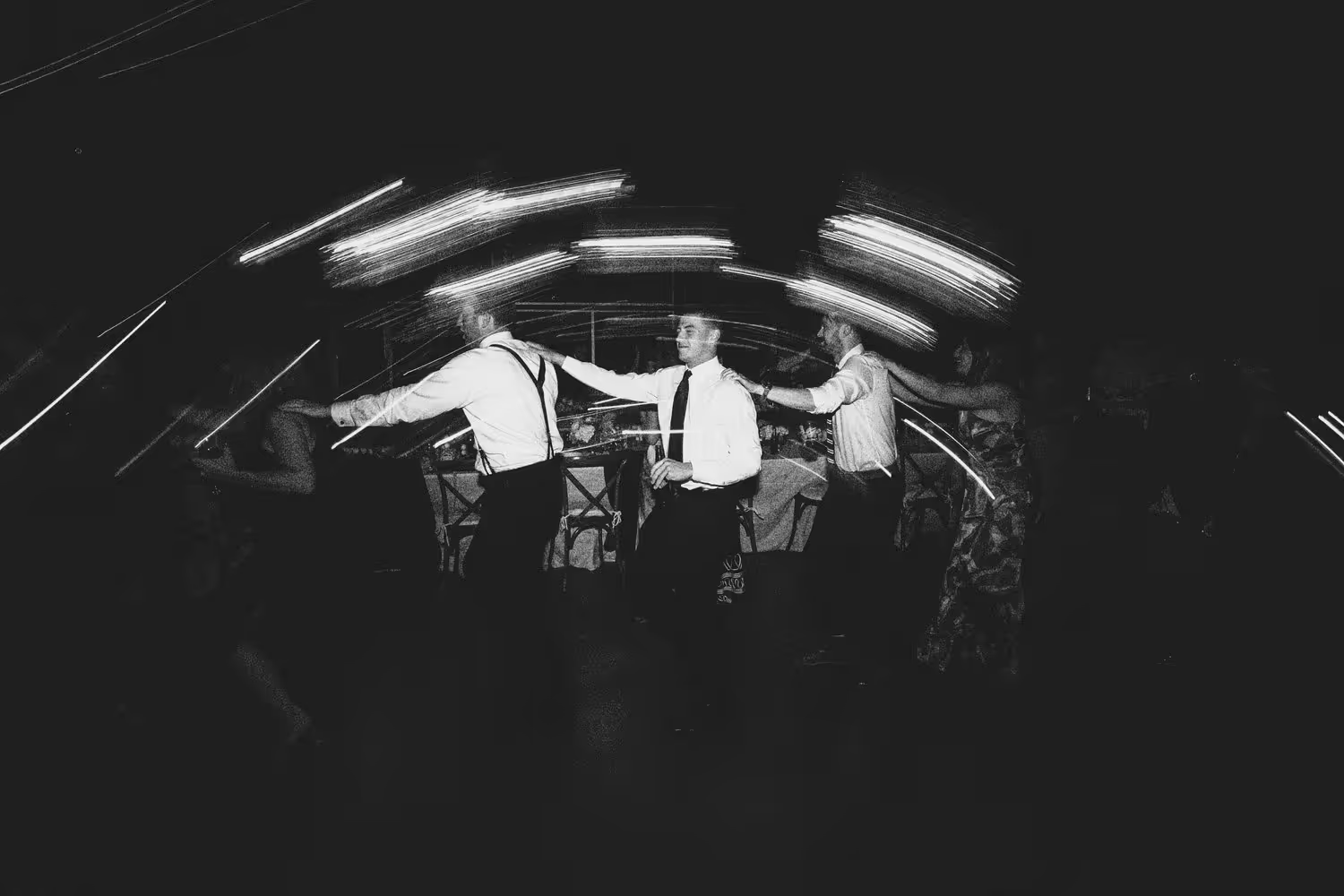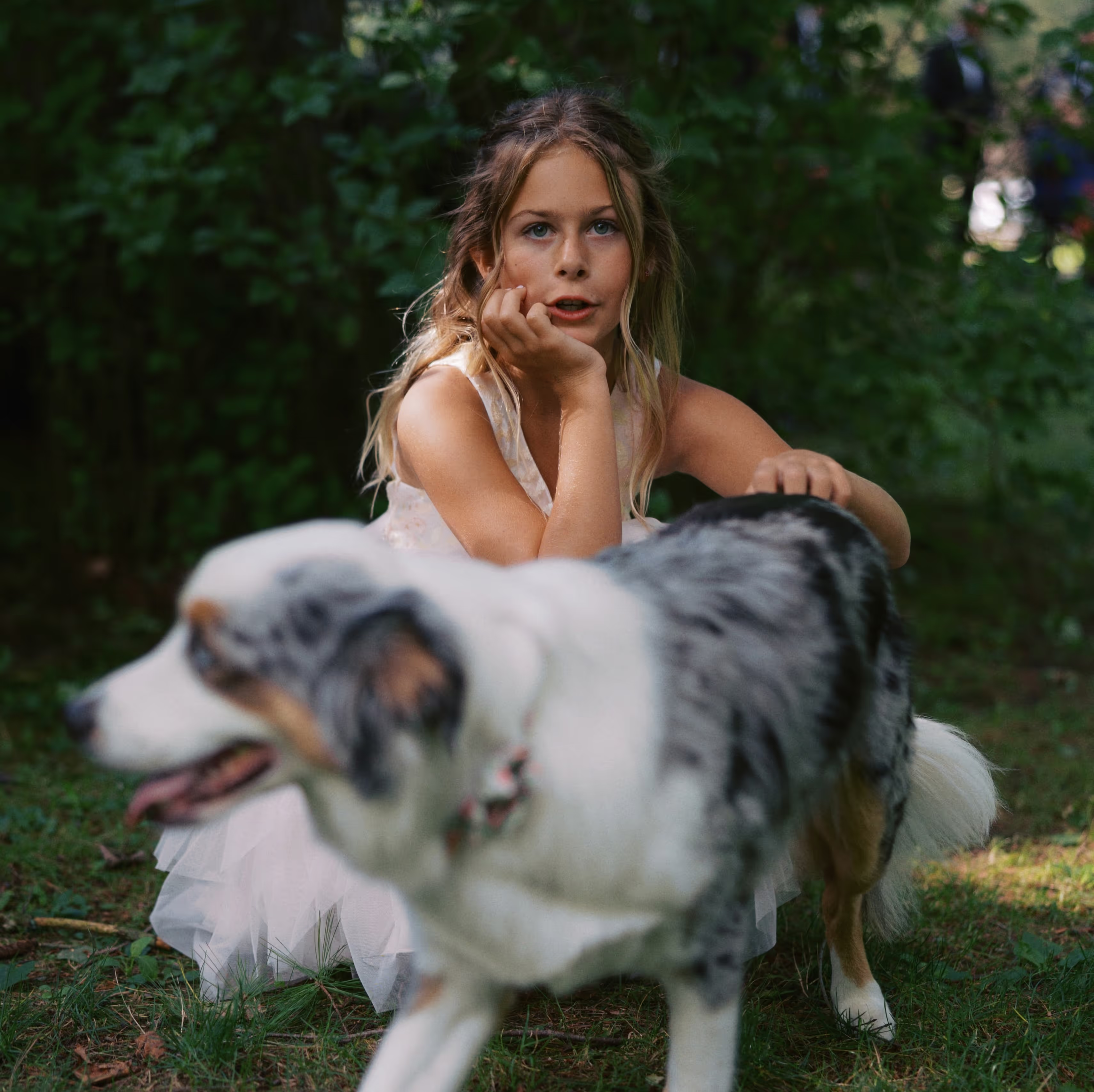
I'm Tyler Jordan Soucy, a bi-coastal documentary wedding photographer based in the United States, who works with couples worldwide. I believe that weddings are meant to be lived, not performed. This journal is where I share some of my quick insights as a documentary photographer, and I hope that you find something useful or inspiring here.
There's not just one way to do things, and there's a perfect photographer for every couple out there. Some couples want their weddings to feel like a big production where they can be models for a day—and maybe that's exactly who they are. But for me, weddings are about prioritizing the precious time you have with the people you love and genuinely protecting your experience of the day. Of course, we'll still capture those important portraits and family photos—and as a documentary wedding photographer I'll ensure those moments remain natural and true to you.
Sometimes, as wedding professionals, we get caught up thinking our expertise and guidance are a key part of our value. But to me, this assumes that I know how your wedding should look or feel based solely on my past experiences, or that you're even looking for someone to step in and direct your day. That's why I lead as a photographer first and as a wedding-day resource when needed.

To walk this back a little bit, my relationship with photography started with the film cameras my mom always had around when we were kids. Back then, I didn't put too much thought into the power of photos—I was usually making some awkward face or rolling my eyes when she'd take pictures. But now, when I look back at those candid shots from family parties or vacations, they reconnect me with parts of my childhood that I'd otherwise have forgotten.
Growing up, I wasn't aware that photographing weddings with a photojournalistic, documentary style was even an option. The weddings I attended as a kid, and later as part of wedding parties, all involved traditional wedding photographers. They took the same staged photos: the first kiss, cutting the cake, bouquet toss—always following the same formula, often missing the real moments in between. It felt repetitive and impersonal.

Before documenting weddings, my journey as a photographer began with street photography and behind-the-scenes work on film sets. Both taught me invaluable lessons about observation, anticipation, storytelling, and authenticity, all of which shaped my documentary approach to wedding photography.
Street photography demands patience, intuition, and a sharp eye for subtle, in-between moments. It requires you to notice details—a glance, a gesture, a change in light—that most people would overlook. It taught me to stay present and focused, ready to capture the emotional undercurrent of real life. That kind of observational practice refined my ability to photograph quiet yet powerful images that resonate deeply. It's where I first learned how satisfying it can feel to freeze a moment at just the right time.
My work as a behind-the-scenes photographer taught me the power of visual storytelling—how to use composition, framing, and light to create emotion without interrupting the flow of a scene. Film sets are inherently performative, but the stills photographer is also there to capture what happens between the performances. You're not staging; you're witnessing. That respect and trust for what's already unfolding translates directly into how I photograph weddings.

When a production assistant saw my work and asked me to photograph my first very wedding in my documentary style, it all clicked. That wedding had the spontaneity and humanity I loved about street photography but amplified: the emotions were raw, the energy was real, and I was invited in to witness and document all of the beautiful vulnerability with intention and consent. I immediately knew this was the right path for me.
Within a week, I began second and associate shooting for other wedding photographers, learning invaluable skills along the way. While I'm grateful for all of these experiences, I slowly realized that I had begun adopting some more traditional habits—a lot of posing, making rooms look perfectly clean, staging special moments, asking couples to do things multiple times at unatural speeds—and that didn't align with what I love about weddings or photography. After hitting a wall, I decided to fully commit to photographing weddings in a way that is authentic to both the couple and myself—as a documentary wedding photographer.

To me, photography celebrates individuality and is a vessel for valuable memories. The documentary wedding photography approach respects each couple's uniqueness and aligns perfectly with the ethos I've built around my own work. Asking a couple to pose the same way as another, or directing how they should express love, simply feels like a weird prospect when you zoom out and focus on what matters—the people in front of you.
I believe weddings shouldn't be treated like a photo shoot or scheduled around staged moments and performative expectations.
Love doesn't look the same for everyone, and my goal is always to capture it exactly as it is.













